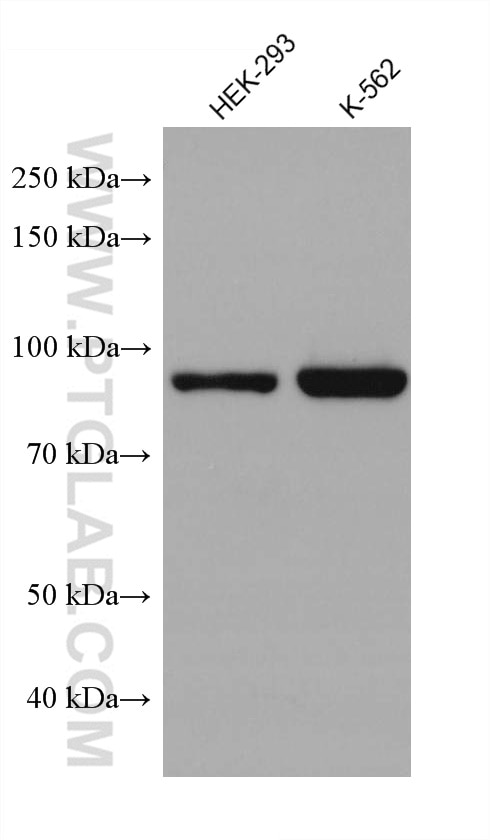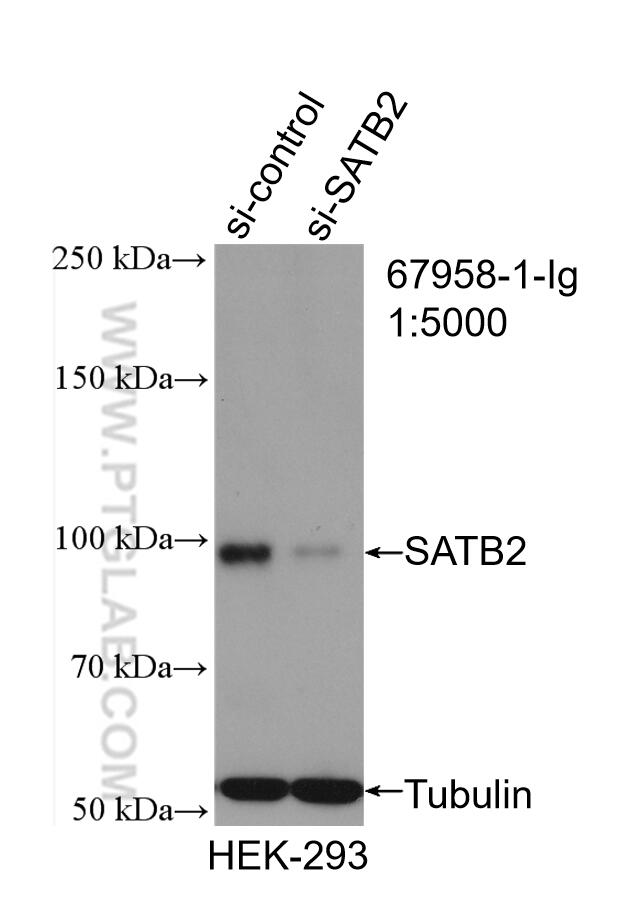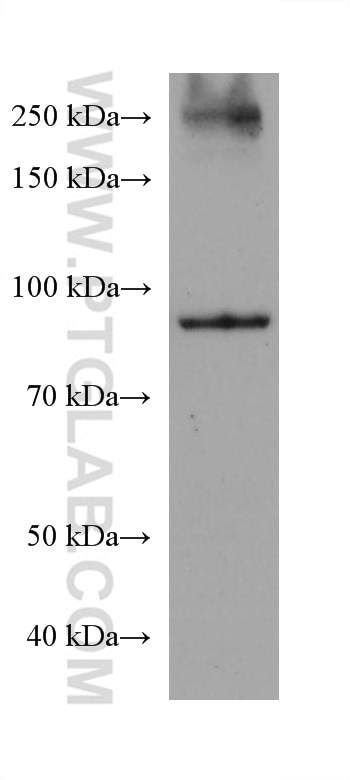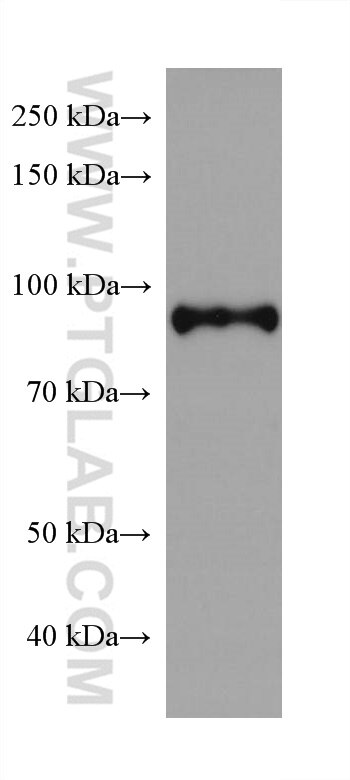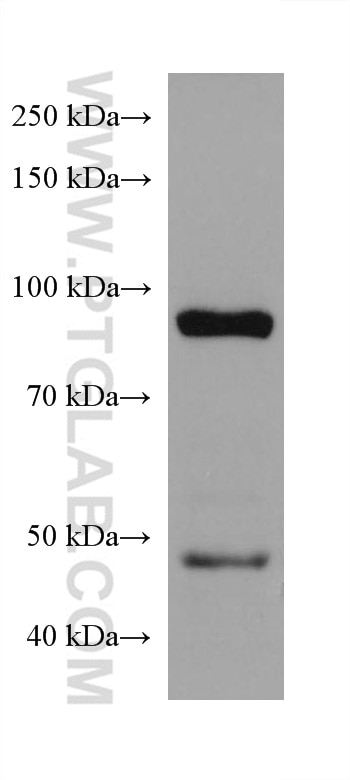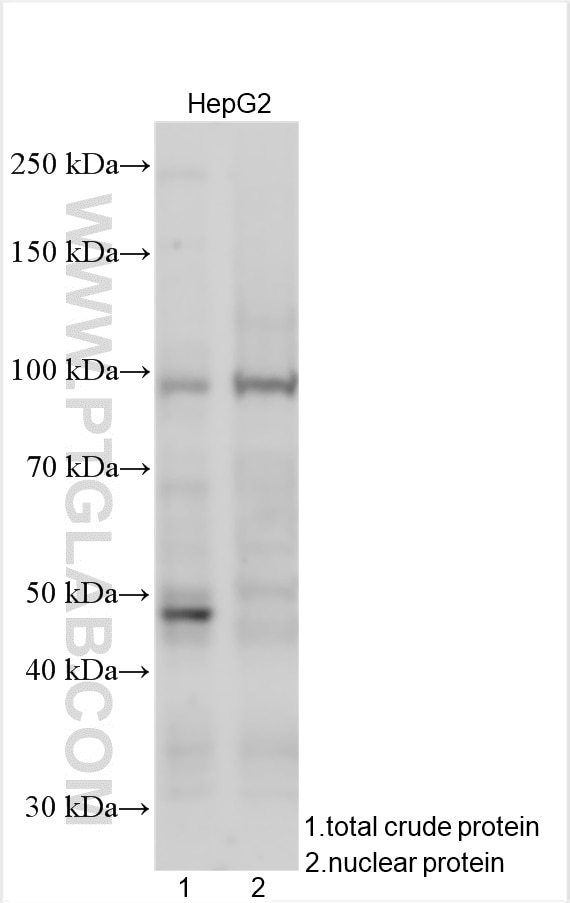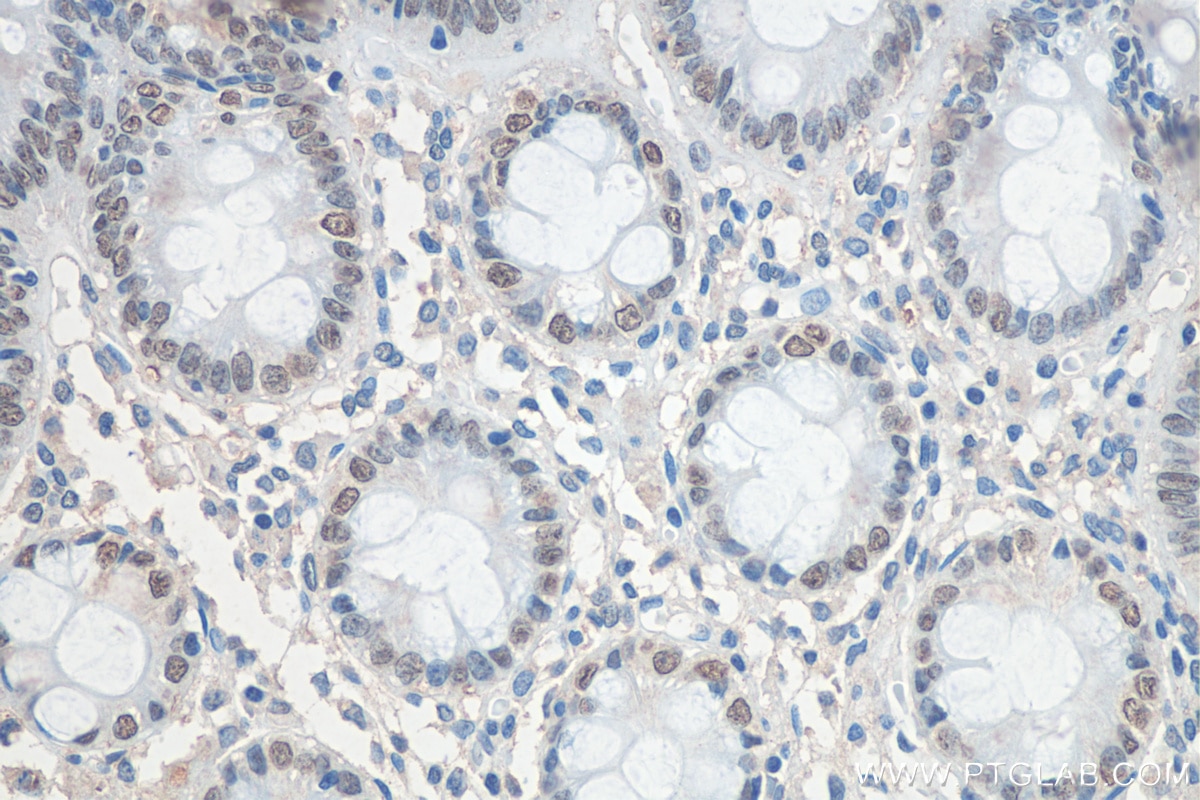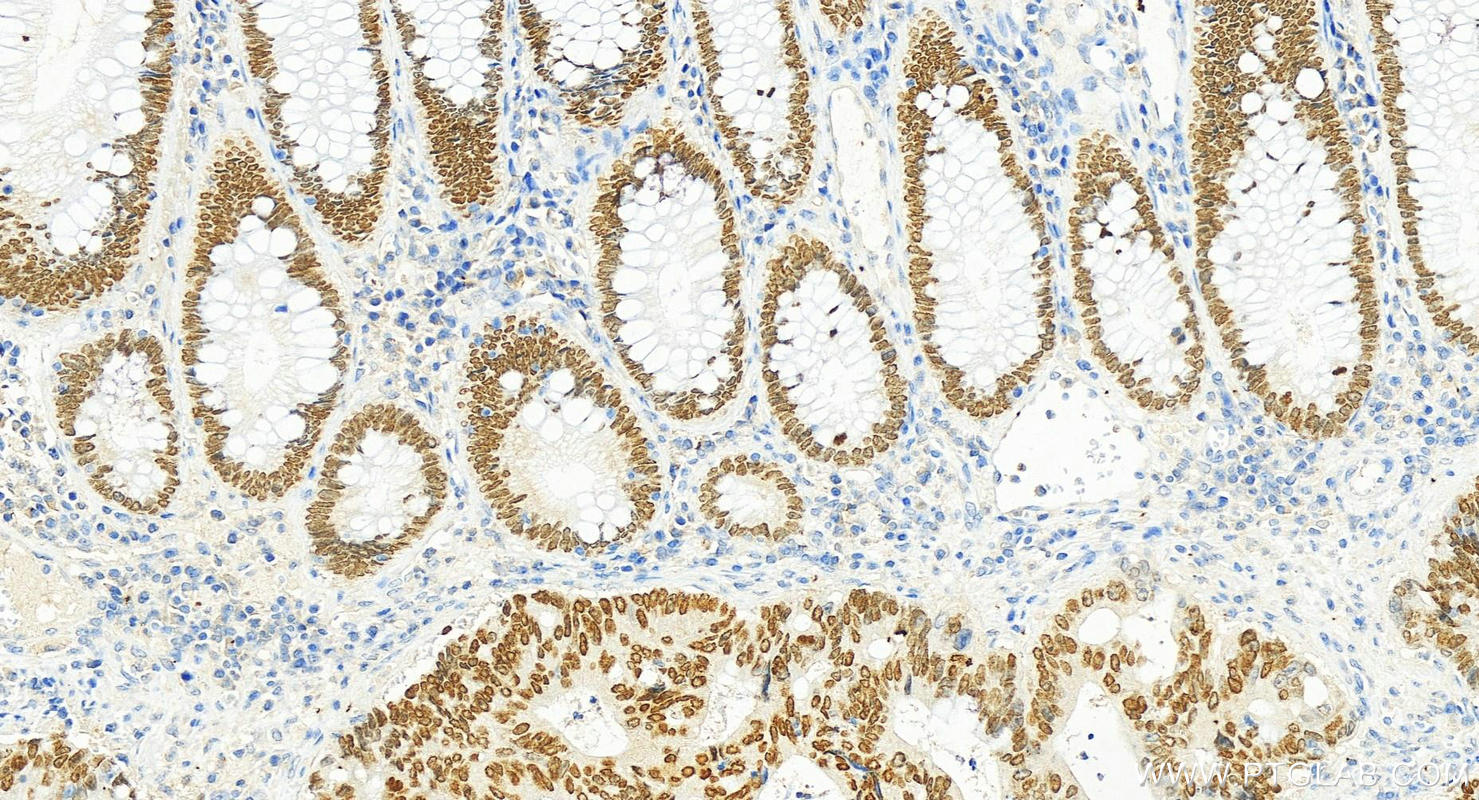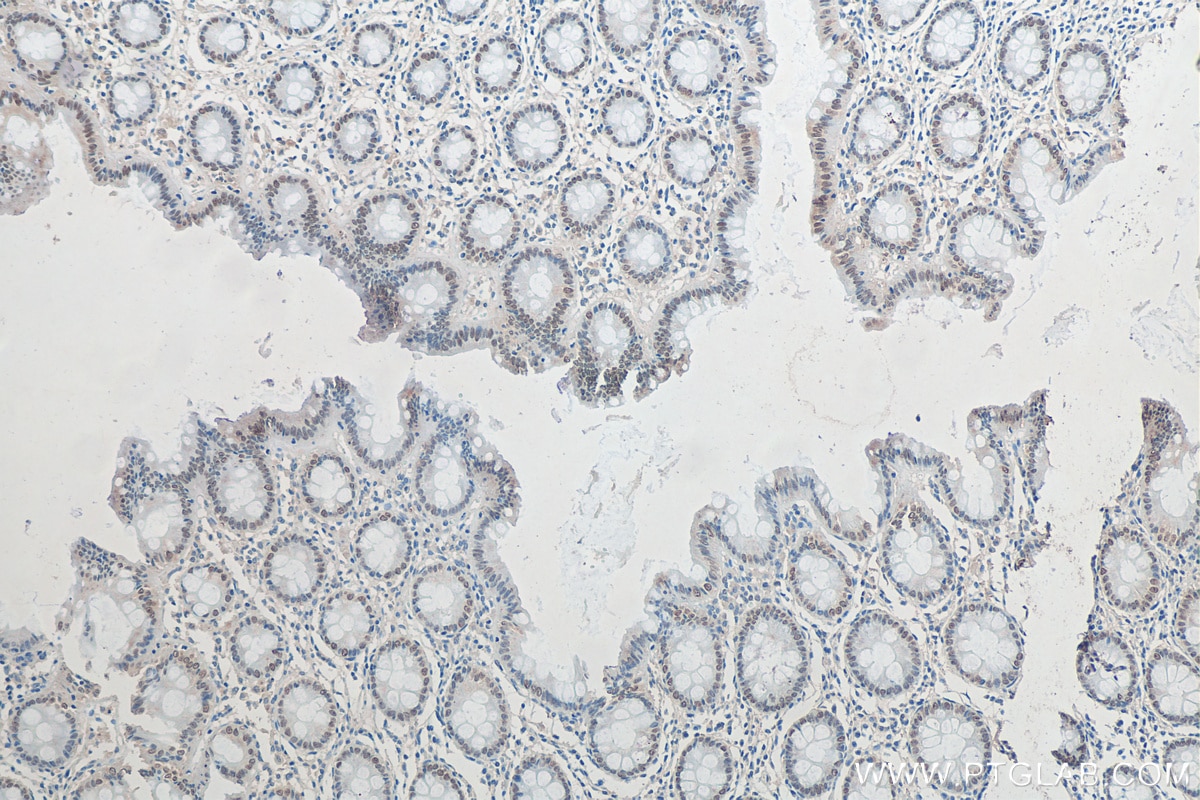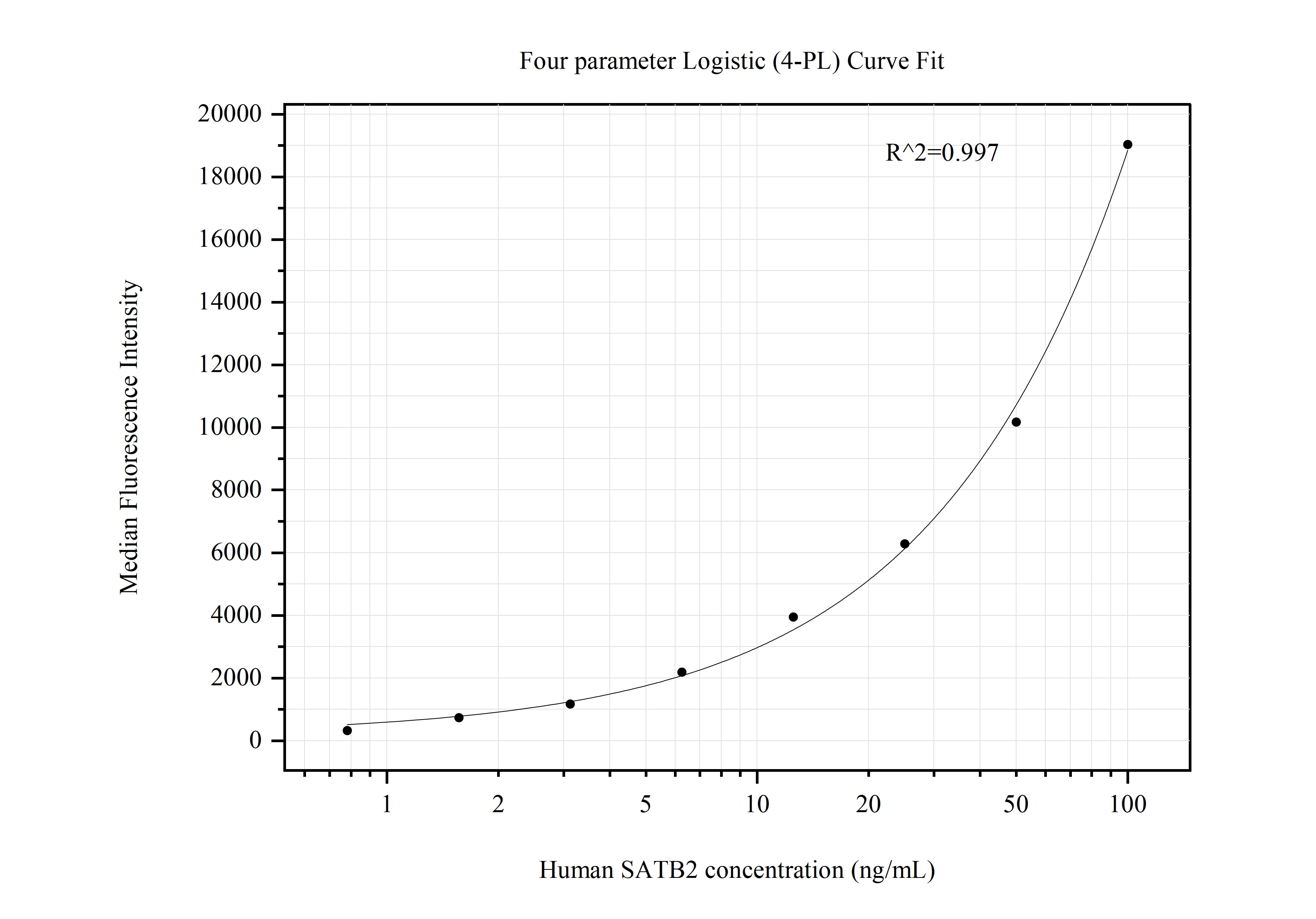- Featured Product
- KD/KO Validated
SATB2 Monoklonaler Antikörper
SATB2 Monoklonal Antikörper für WB, IHC, Cytometric bead array, Indirect ELISA
Wirt / Isotyp
Maus / IgG1
Getestete Reaktivität
human, Maus
Anwendung
WB, IHC, Cytometric bead array, Indirect ELISA
Konjugation
Unkonjugiert
CloneNo.
2F8E2
Kat-Nr. : 67958-1-PBS
Synonyme
Geprüfte Anwendungen
Produktinformation
67958-1-PBS bindet in WB, IHC, Cytometric bead array, Indirect ELISA SATB2 und zeigt Reaktivität mit human, Maus
| Getestete Reaktivität | human, Maus |
| Wirt / Isotyp | Maus / IgG1 |
| Klonalität | Monoklonal |
| Typ | Antikörper |
| Immunogen | SATB2 fusion protein Ag17237 |
| Vollständiger Name | SATB homeobox 2 |
| Berechnetes Molekulargewicht | 733 aa, 83 kDa |
| Beobachtetes Molekulargewicht | 85-100 kDa |
| GenBank-Zugangsnummer | BC098136 |
| Gene symbol | SATB2 |
| Gene ID (NCBI) | 23314 |
| Konjugation | Unkonjugiert |
| Form | Liquid |
| Reinigungsmethode | Protein-G-Reinigung |
| Lagerungspuffer | PBS only |
| Lagerungsbedingungen | Store at -80°C. 20ul Größen enthalten 0,1% BSA. |
Hintergrundinformationen
SATB2, also named as KIAA1034, belongs to the CUT homeobox family. SATB2 binds to DNA at nuclear matrix- or scaffold-associated regions. STAB2 recognizes the sugar-phosphate structure of double-stranded DNA. SATB2 is a transcription factor controlling nuclear gene expression, by binding to matrix attachment regions (MARs) of DNA and inducing a local chromatin-loop remodeling. SATB2 acts as a docking site for several chromatin remodeling enzymes and also by recruiting corepressors (HDACs) or coactivators (HATs) directly to promoters and enhancers. It is required for the initiation of the upper-layer neurons (UL1) specific genetic program and for the inactivation of deep-layer neurons (DL) and UL2 specific genes, probably by modulating BCL11B expression. It is a repressor of Ctip2 and regulatory determinant of corticocortical connections in the developing cerebral cortex. SATB2 may play an important role in palate formation. SATB2 acts as a molecular node in a transcriptional network regulating skeletal development and osteoblast differentiation. SATB2 has two isoforms produced by alternative splicing with the MW of 70 kDa and 83 kDa. It can be detected as 85-105 kDa by sumo modification (PMID: 14701874, PMID: 35140581).
